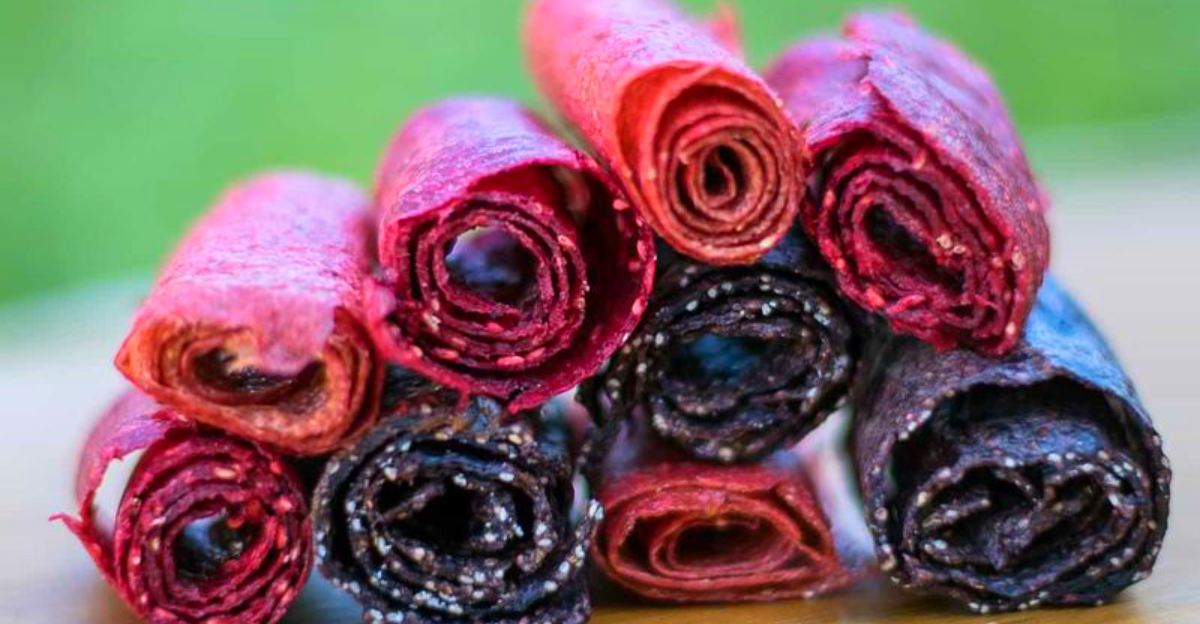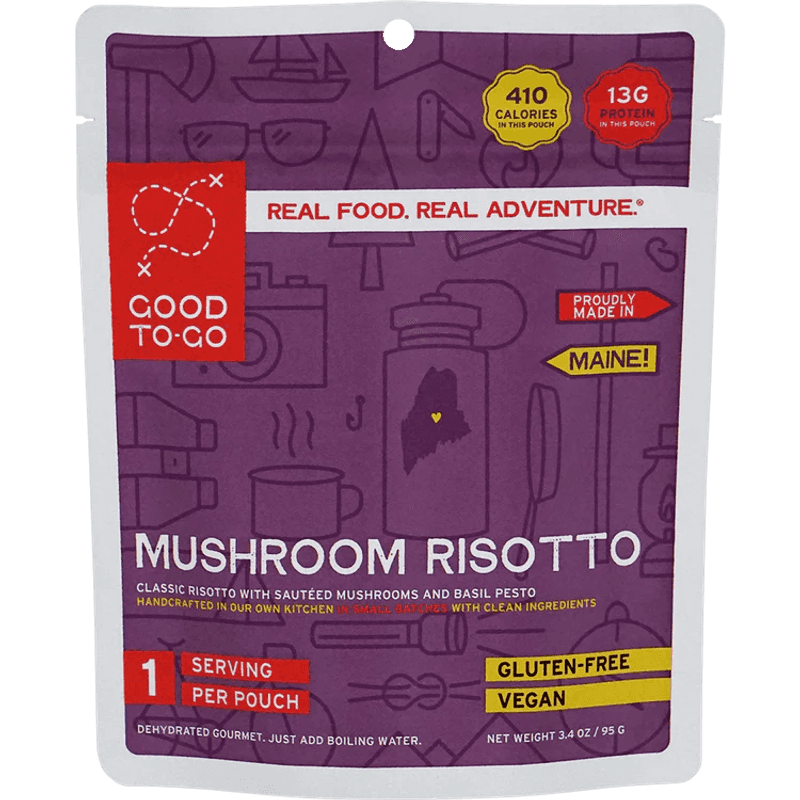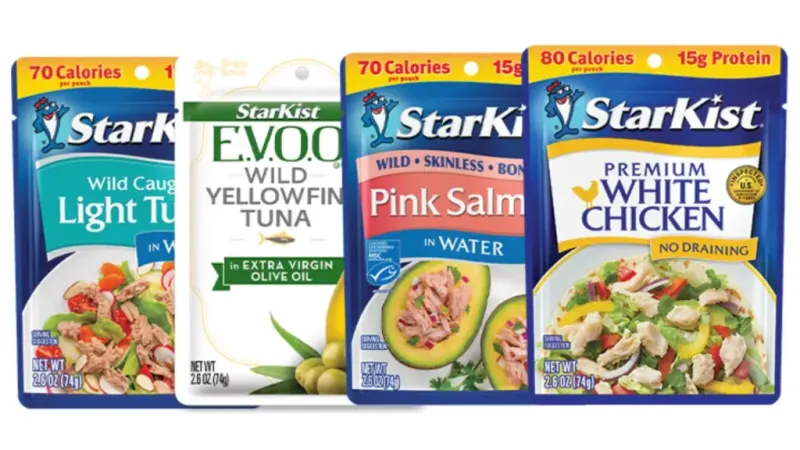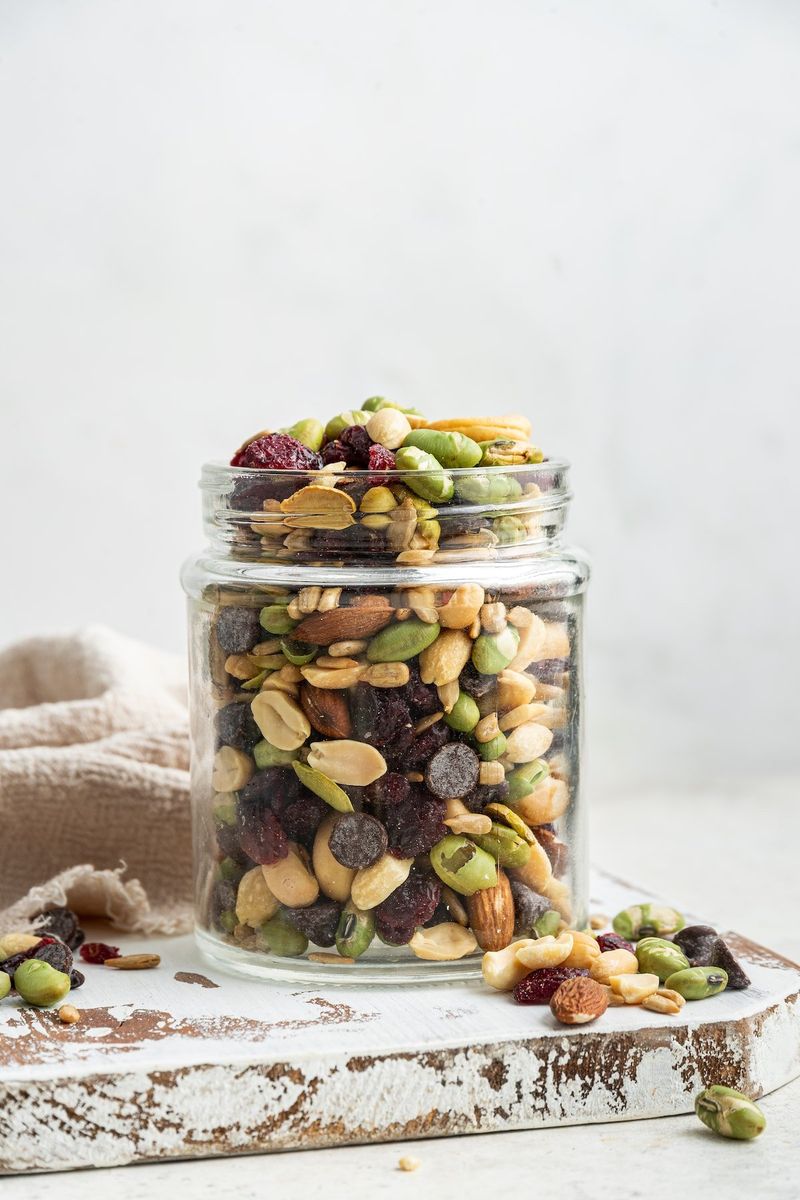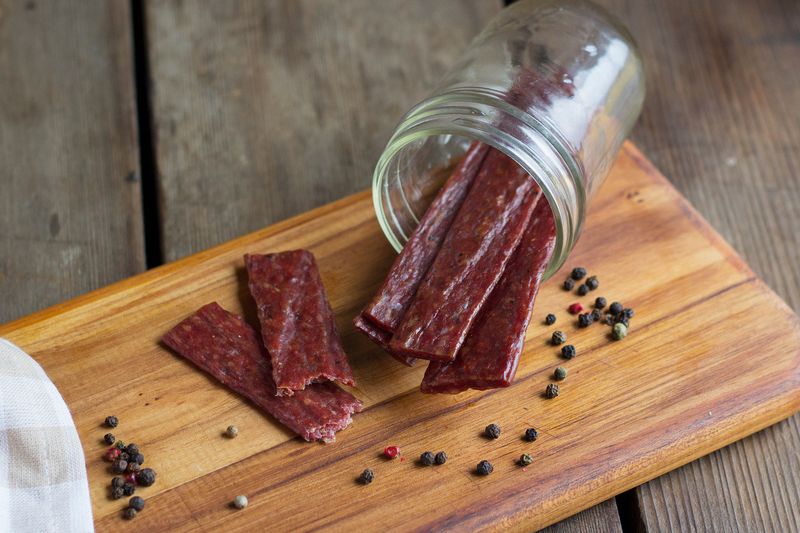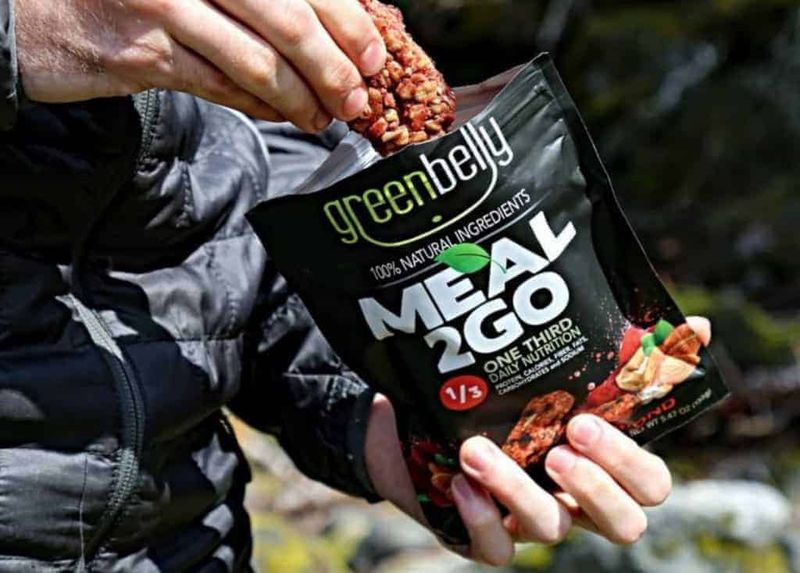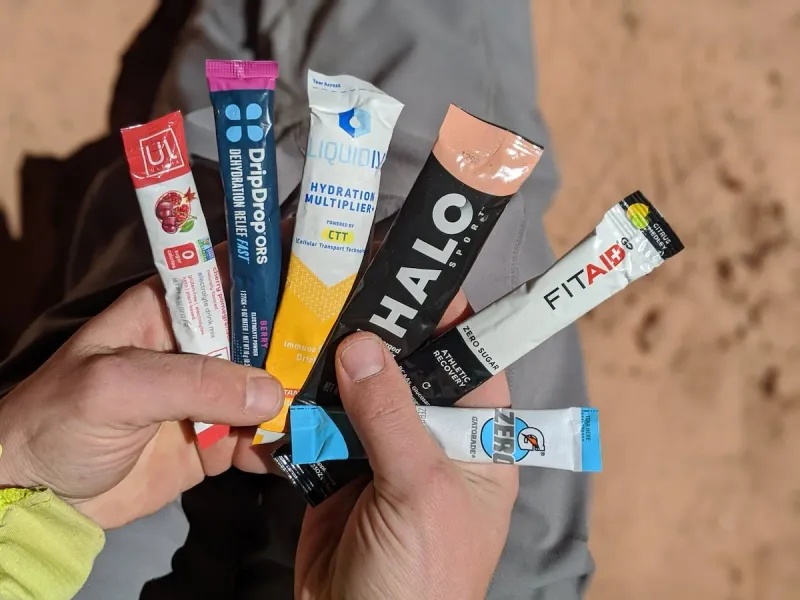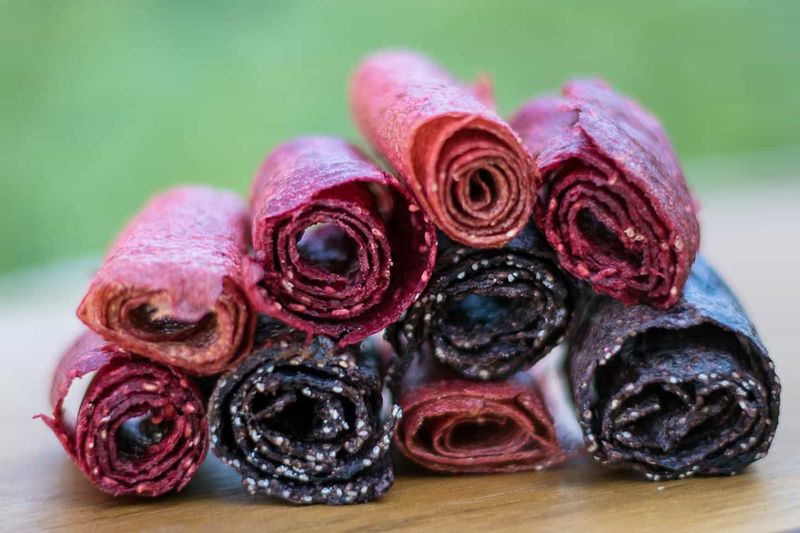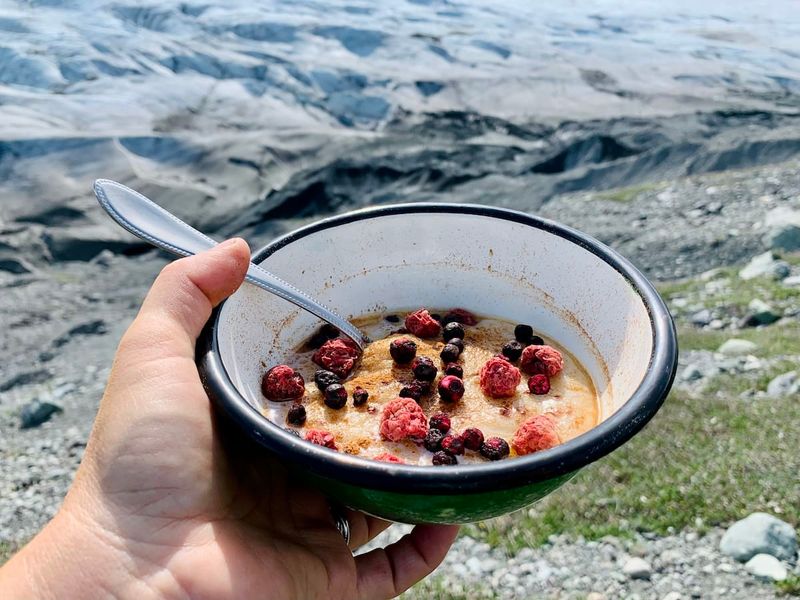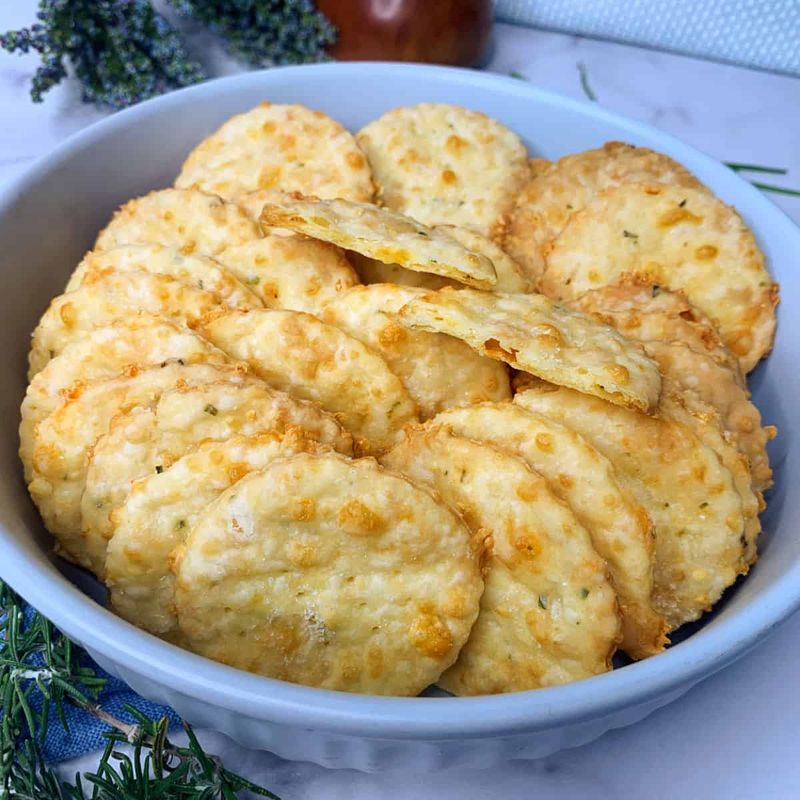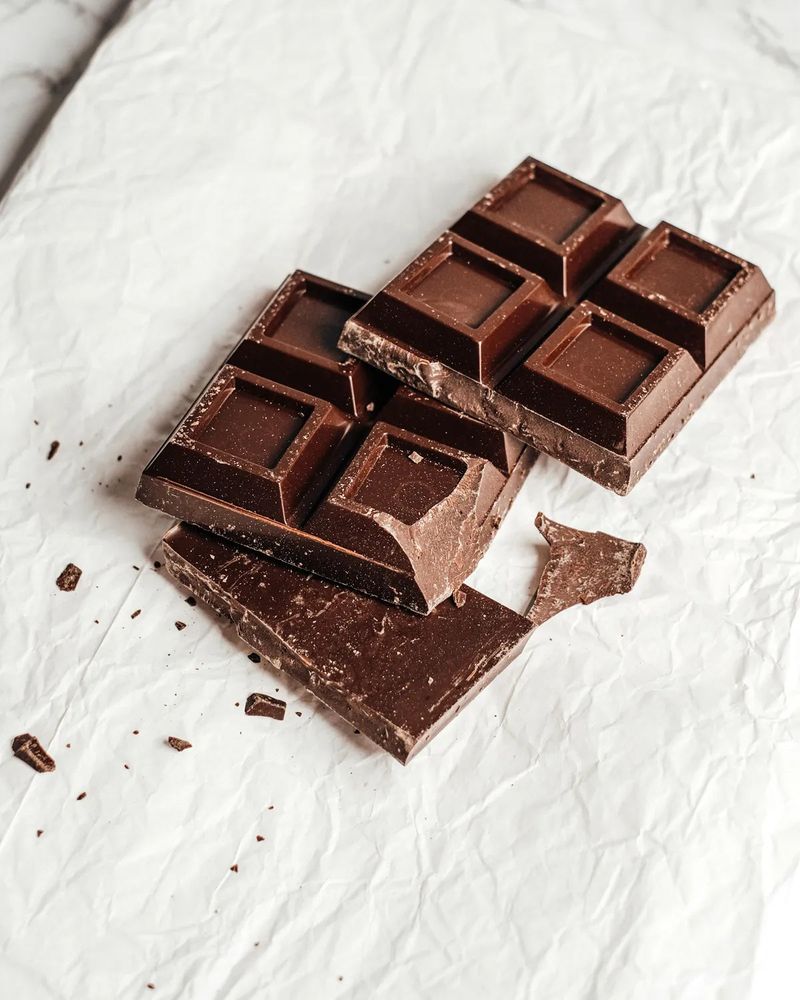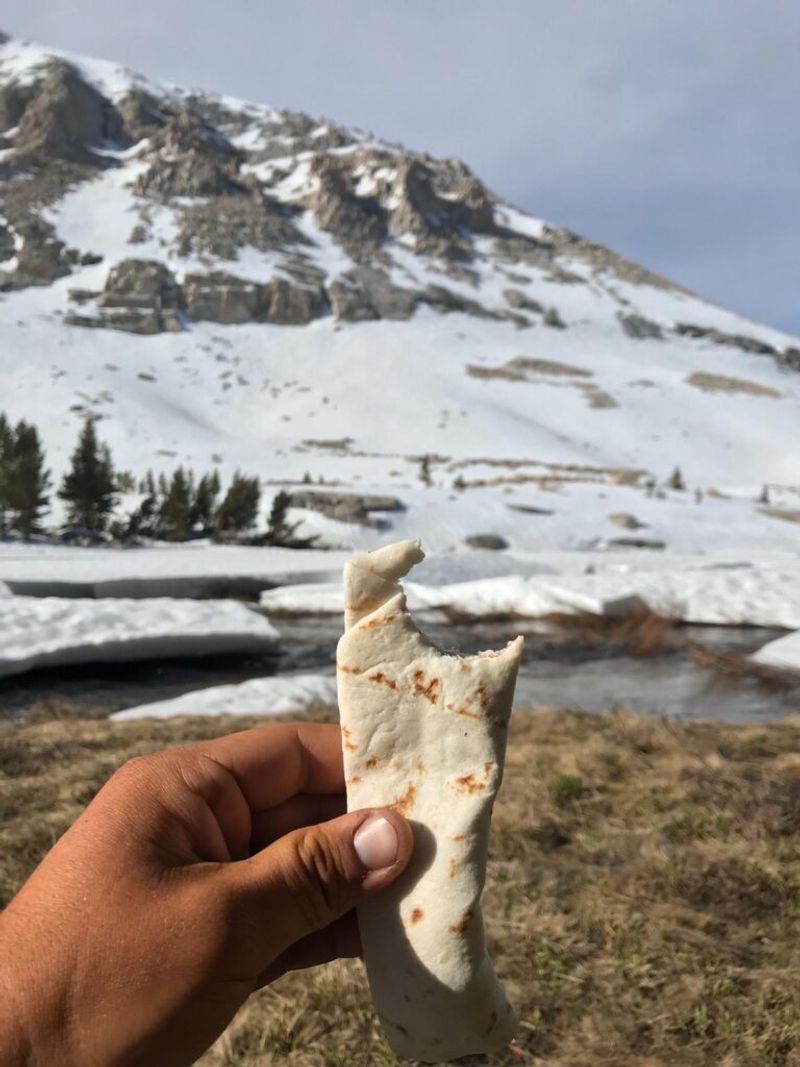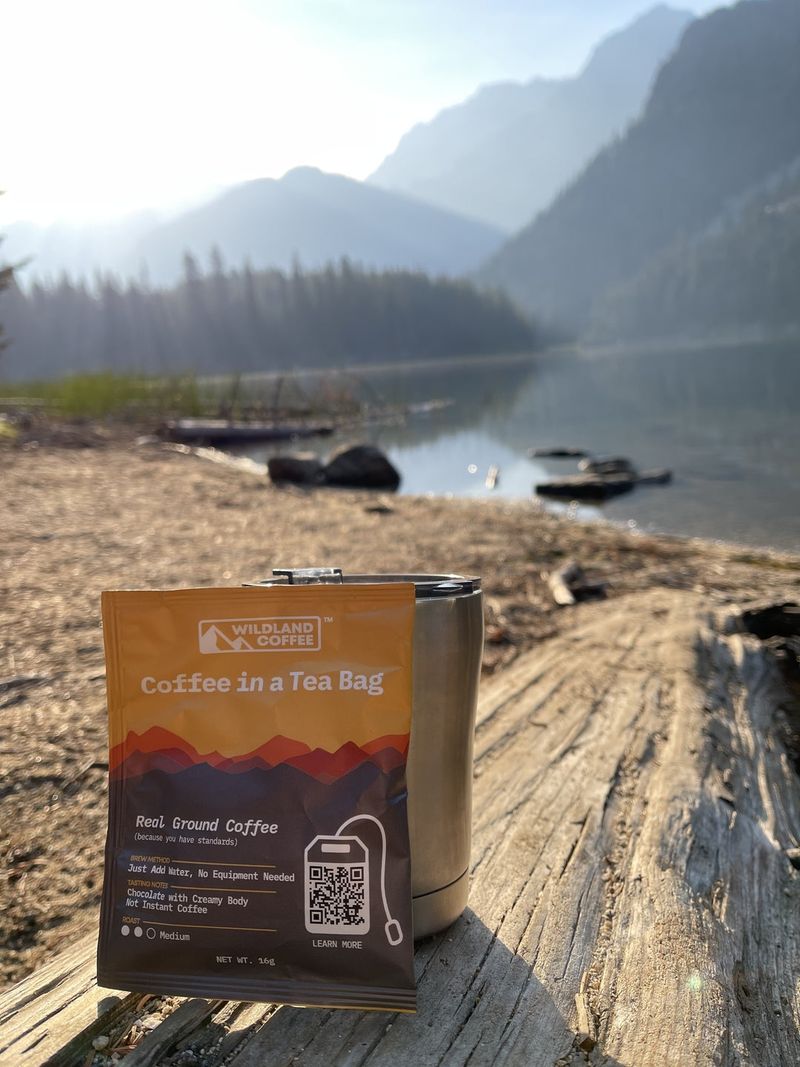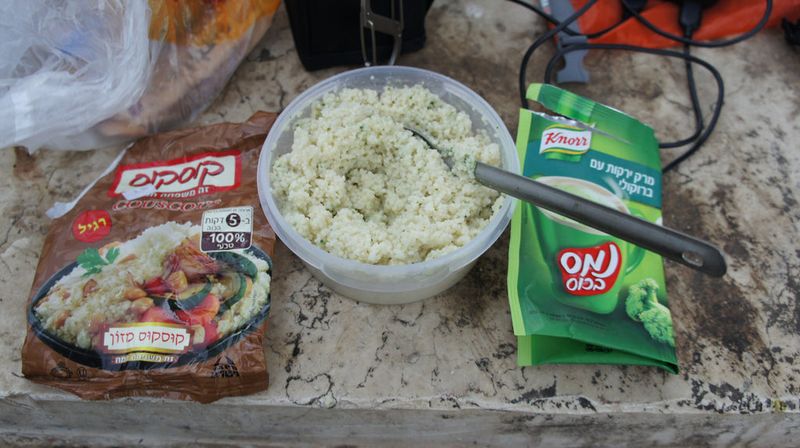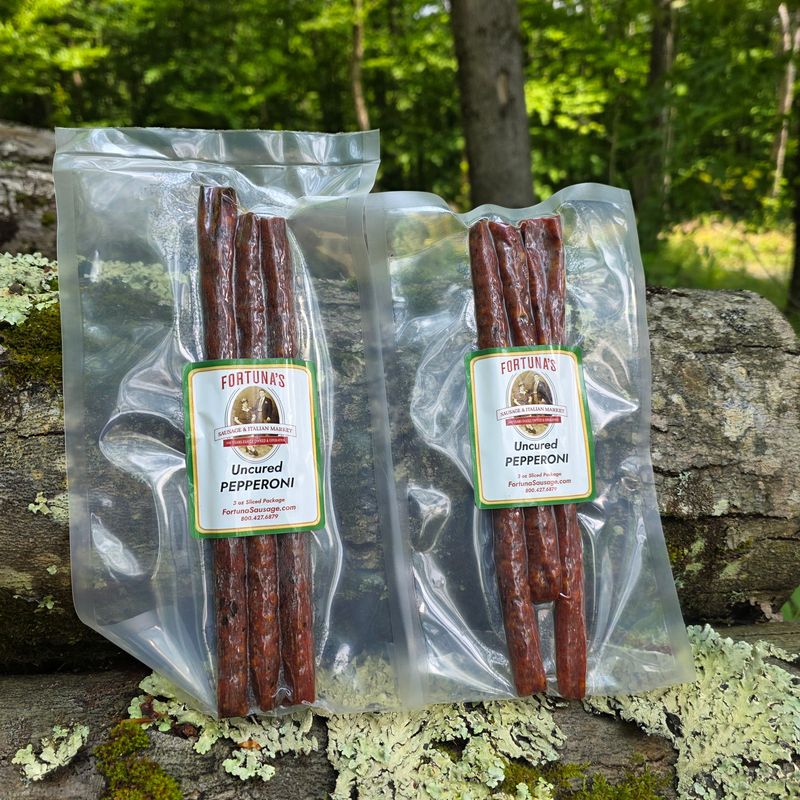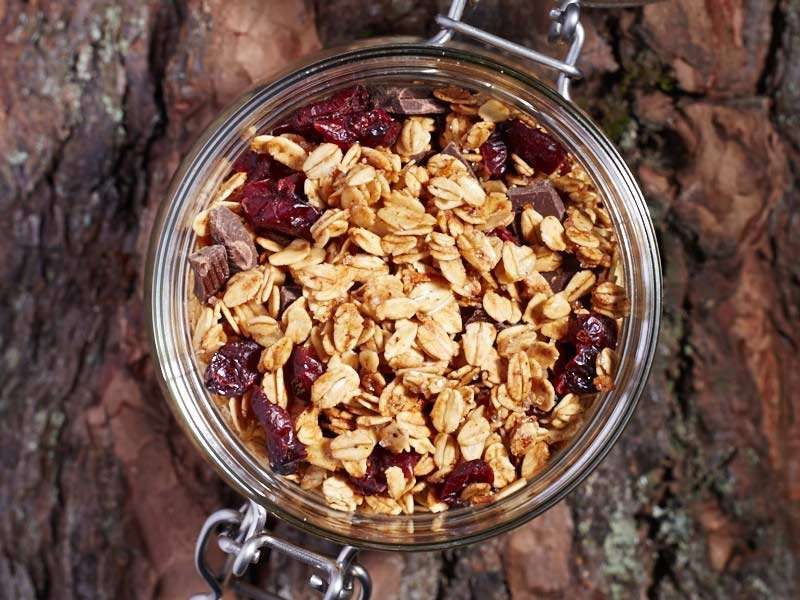Hitting the trail for a multi-day adventure means you need fuel that won’t weigh you down or spoil halfway through your journey. Smart backpackers know that choosing the right snacks can make the difference between a miserable slog and an energized, enjoyable trek. Whether you’re climbing steep switchbacks or cruising through forest paths, keeping your energy steady with tasty, packable food is absolutely essential for a successful trip.
1. Dehydrated & Freeze-Dried Meals (Dinner-in-a-bag)
After a long day on the trail, nothing beats a hot meal that requires almost zero effort. Freeze-dried dinners have revolutionized backcountry cooking because you simply tear open the pouch, add boiling water, wait about eight to ten minutes, and eat straight from the bag. No pots to scrub, no mess to clean up.
Good To-Go Herbed Mushroom Risotto stands out for its creamy texture and real vegetable chunks. Peak Refuel Chicken Alfredo delivers serious protein, while Mountain House Chili Mac remains a classic favorite that never disappoints. These three earned top marks in REI’s 2025 staff testing for taste and convenience combined.
2. Protein-Rich Pouches (Salmon/Tuna)
Compact protein sources that don’t need refrigeration are pure gold on the trail. Salmon and tuna pouches pack serious nutrition into a tiny, lightweight package that fits anywhere in your pack. Pair them with tortillas, crackers, or instant rice for a satisfying lunch that takes seconds to assemble.
Patagonia Provisions Wild Pink Salmon is a standout choice—ready to eat straight from the pouch with no preparation needed. The retort and freeze-dried packaging technologies keep these products shelf-stable for months, so you never have to worry about spoilage. Perfect for when you want protein without firing up your stove.
3. High-Calorie Crunch (Nuts, Nut-Butter Packets, Trail Mix)
When you need maximum energy in minimum weight, nuts and trail mix deliver unbeatable calories per ounce. Mixing sweet and salty flavors keeps your taste buds interested, which matters more than you’d think when you’re eating the same snacks for days. Almonds, cashews, and peanuts provide healthy fats that sustain energy longer than simple carbs.
Most backpackers aim for roughly 2,500 to 4,500 calories daily, depending on terrain difficulty, elevation gain, and weather conditions. That typically translates to about one-and-a-half to two-and-a-half pounds of food. Nut-butter packets offer concentrated calories in squeezable form—perfect for spreading on crackers or eating straight.
4. Jerky or Meat Sticks
Shelf-stable protein that survives hot weather without spoiling is a backpacker’s dream come true. Commercially processed jerky and meat sticks are specifically designed to stay safe at room temperature, making them reliable trail companions. They satisfy hunger quickly and provide the protein your muscles need after hours of hiking.
Beef, turkey, and even salmon jerky varieties give you flavor options to prevent menu boredom. Meat sticks are especially convenient because they come individually wrapped and require zero preparation—just tear and eat. The chewy texture also gives your jaw something to do during those long stretches between camp.
5. Energy Bars & Chews
Timing your fuel intake matters almost as much as what you eat, and energy bars make pacing simple. Pop one every sixty to ninety minutes during big mileage days, and you’ll maintain steady energy without bonking. They’re designed to open easily, even with cold fingers or while walking.
Rotating flavors prevents the dreaded taste fatigue that hits on multi-day trips when you’re eating the same things repeatedly. REI’s recommended snack list smartly includes treats like cookie bites alongside standard bars because variety genuinely matters for morale. Some bars focus on quick carbs, while others balance protein and fat for longer-lasting energy.
6. Electrolyte Mix or Tabs
Hydration isn’t just about drinking water—it’s about replacing what you lose through sweat. Sodium losses can range anywhere from 230 to 1,610 milligrams per liter of sweat, depending on individual differences and conditions. Hot weather, high elevation, and long days all increase your need for electrolyte replacement beyond plain water.
Most athletes do well consuming about 0.4 to 0.8 liters per hour with added sodium during extended or hot efforts. However, you don’t always need mega-doses; around 200 to 300 milligrams of sodium per serving works fine unless you’re an exceptionally salty sweater or tackling particularly demanding conditions.
7. Dried Fruit & Fruit Leather
Natural sugar from dried fruit gives you quick energy without the artificial ingredients found in many processed snacks. Apricots, mangoes, and cranberries pack vitamins alongside their sweetness, making them nutritionally superior to candy. Fruit leather rolls up tiny and light, perfect for stuffing into side pockets.
The chewy texture satisfies cravings while providing fast-acting carbohydrates your body can convert to energy rapidly. Dried fruit also helps with, let’s be honest, keeping things moving digestively when you’re living on concentrated trail food. Just watch portion sizes since the calorie density adds up quickly, though that’s actually a benefit when you’re burning thousands of calories daily.
8. Instant Oatmeal Packets
Breakfast on the trail needs to be fast, warm, and filling—instant oatmeal checks all three boxes perfectly. Just add hot water, stir, and you’ve got a hearty start to your hiking day in under two minutes. Flavored varieties like maple brown sugar or apple cinnamon make mornings something to look forward to.
Oatmeal provides complex carbohydrates that release energy gradually, keeping you fueled through the morning miles. Adding a nut-butter packet or some dried fruit boosts the calories and makes it even more satisfying. The packets are lightweight, crush-resistant, and portion-controlled, which takes the guesswork out of measuring at dawn when you’re still groggy.
9. Hard Cheese & Crackers
Hard cheeses like cheddar, parmesan, and gouda survive surprisingly well without refrigeration for several days. Their low moisture content prevents rapid spoilage, making them viable protein and fat sources on shorter trips. Paired with sturdy crackers, they create a satisfying lunch or snack that feels almost luxurious in the backcountry.
Cheese provides concentrated calories and tastes nothing like typical trail food, which gives your palate a welcome break. Crackers add crunch and carbs to balance the richness. Wrap your cheese in wax paper or foil, keep it in a cool part of your pack, and enjoy it within the first few days for best quality and safety.
10. Chocolate & Candy
Sometimes you just need a morale boost, and chocolate delivers happiness in edible form. Dark chocolate holds up better in warm weather than milk chocolate, though both will eventually melt if it’s hot enough. Candy provides quick sugar when you’re dragging and need an immediate pick-me-up.
Treats aren’t just about calories—they’re about mental health on tough days when your legs ache and camp still feels miles away. A small piece of chocolate can genuinely improve your mood and motivation. Pack a few favorites but keep portions reasonable since they’re mostly empty calories compared to nutrient-dense options. Still, never underestimate the power of a candy bar at the right moment.
11. Tortillas & Bagels
Bread goes stale fast, but tortillas and bagels stay fresh for days, making them ideal carb bases for trail meals. Tortillas are incredibly versatile—wrap them around anything from nut butter to tuna pouches to create satisfying lunches. They pack flat and don’t crumble into useless crumbs like regular bread.
Bagels offer more substance and chew, perfect for breakfast with cream cheese packets or as a hefty snack slathered with peanut butter. Both provide the carbohydrates your body craves for sustained hiking energy. Choose whole wheat versions for extra fiber and nutrients. They’re filling, familiar, and turn simple ingredients into meals that actually feel like meals instead of just fuel.
12. Instant Coffee or Tea Bags
Morning caffeine isn’t just a luxury—for many hikers, it’s essential equipment. Instant coffee and tea bags weigh practically nothing but deliver the ritual and boost that kickstart your day. Single-serve packets eliminate measuring and prevent waste, giving you exactly what you need without carrying extra weight.
Coffee helps wake up your brain before you start navigating trails, while tea offers warmth and comfort at the end of long days. Caffeine also has legitimate performance benefits, improving endurance and reducing perceived effort. Whether you prefer bold coffee or soothing herbal tea, having your preferred hot beverage makes camping feel more civilized and enjoyable in the wilderness.
13. Instant Rice or Couscous Sides
Quick-cooking starches like instant rice and couscous give you a base to build meals around without long cook times. They rehydrate in just minutes with boiling water, using minimal fuel—a real consideration on extended trips. Add a protein pouch, some dried vegetables, or seasoning packets to create surprisingly decent dinners.
Couscous is especially fast, often ready in five minutes or less, while instant rice takes slightly longer but offers more familiar comfort-food vibes. Both are lightweight, affordable, and available in various flavors at any grocery store. They stretch your food supply by bulking up smaller amounts of protein or sauce into filling meals that satisfy hungry hikers completely.
14. Dried Salami & Pepperoni
Cured meats have fueled travelers for centuries because they’re shelf-stable, calorie-dense, and incredibly flavorful. Salami and pepperoni contain fat and protein that provide lasting energy and make simple meals taste special. Slice them onto crackers, add them to instant pasta, or eat them straight when you need quick calories.
The curing and drying process preserves these meats naturally, so they don’t require refrigeration for several days or even weeks. They’re particularly satisfying on cold evenings when you crave something hearty and savory. Choose varieties without excessive grease to avoid messy pack situations, and enjoy the rich, savory taste that reminds you real food still exists outside civilization.
15. Granola & Cereal
Crunchy granola and cereal provide fast, no-cook breakfast or snack options that require zero motivation to prepare. Eat them dry by the handful while breaking camp, or add powdered milk and cold water for something closer to a real breakfast. They’re light, compact, and store easily in any pack compartment.
Granola typically packs more calories thanks to nuts and honey, while cereal offers familiar comfort and variety in flavors. Both deliver carbohydrates for energy and enough substance to actually feel like you’ve eaten something. They’re especially valuable on mornings when you want to hit the trail early without spending time cooking—just grab, munch, and go while the day is still fresh.
